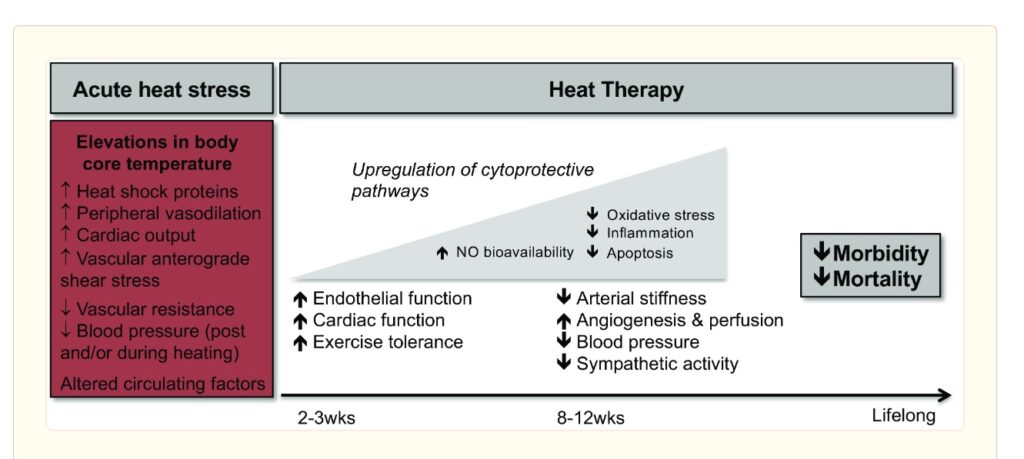The Case For Saunas! Role of Heat shock proteins in cardiac and neuroprotection
Kristen Sparrow • February 07, 2023


As a sort of periodic public service announcement I like to plug saunas. We all know exercise is good for us, but part of the reason why is that we produce heat shock proteins when we exercise. Not all of us can exercise as much or as intensely as we would aspire to, so as an alternative, consider the sauna. It delivers a great hormetic stimulus which benefits your brain and your heart and decreases “all cause morbidity and mortality”, in other words improves life span. Health clubs have them. YMCA’s too.
Heat shock proteins are produced with exercise (both acute and ongoing), and with heat therapy such as saunas. I link to three different
Heat shock proteins and exercise adaptations. Our knowledge thus far and the road still ahead
This article looks at the role of heat shock proteins and exercise.
In the above artic’e they discuss that exercise creates a challenge to the body’s cellular homeostasis, affecting not only muscles but also other organs. Heat shock proteins (HSPs) play a critical role in maintaining cellular homeostasis and have been implicated in exercise-induced adaptations. HSPs such as HSP72 are activated during acute exercise or after chronic exercise training. Further understanding of HSPs in exercise physiology could be beneficial for disease prevention, therapeutic targeting, and athletic training strategies. However, many questions about their role in exercise physiology still remain unanswered.
Heat therapy: mechanistic underpinnings and applications to cardiovascular health
This article looks at heat therapy, like sauna.
Cardiovascular diseases (CVD) are the leading cause of death worldwide and new therapies are needed to prevent or delay onset. Heat therapy, the repeated use of hot baths or saunas, has received renewed attention as a growing number of studies have shown its benefits for cardiovascular health. This review focuses on the molecular mechanisms that explain the cardiovascular benefits of heat therapy.
Heat-Shock Proteins in Neuroinflammation
This looks at the role of heat shock proteins and neuroprotection, specifically fighting neuroinflammation
In this study the authors discuss that heat-shock response is a pro-survival mechanism that allows cells to cope with heat stress. Heat-shock proteins (HSPs) are a conserved set of proteins that help with protein folding and prevent aggregation. HSPs have been linked to neurological diseases by modulating survival, inflammation, and disease-specific signaling. They also act as immune modulators in various bodily fluids. This review summarizes the role of neuroinflammation in acute and chronic brain conditions and explores the role of HSPs in modulating neuroinflammation. The comparison of HSP functions within and outside cells is also discussed. However, the full effect of HSPs on neuroinflammation processes is not yet understood.

